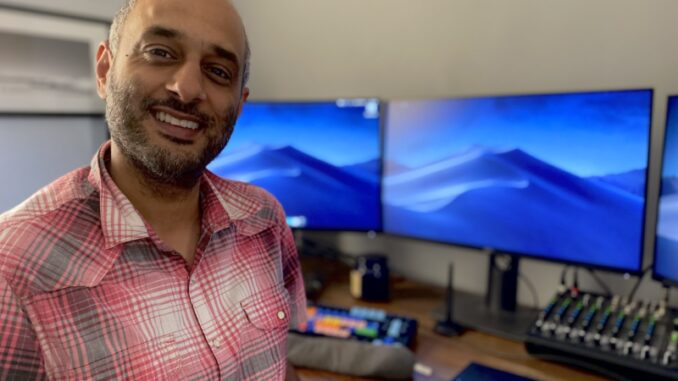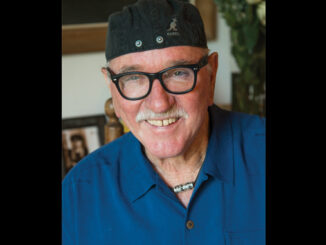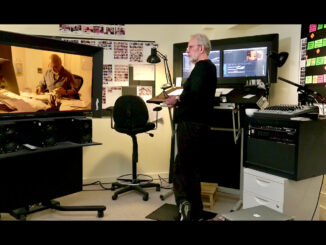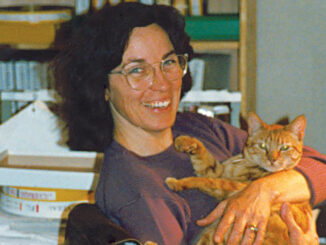
By Rob Feld
British-born Vikash Patel intended to study animation at the University of Northumbria in Newcastle, but when he arrived, he found an Avid Xpress. It was still early days for the technology and nobody there knew how to use it.
After hunkering down with the manual for six weeks, he taught himself the system, found he enjoyed it, and decided to do his two-week internship at a post-production facility, Imagine Post Production. Because he could use the Avid, Imagine’s owners asked him to cut together some music video dailies. Impressed, they offered Patel paying gigs and suddenly he had a career. Patel worked consistently as an editor for the next two and a half years, largely on documentaries, but he was interested in dramatic film and assisted editor David Freeman on an indie. Freeman encouraged Patel to apply to film school to make the connections he might need to make the leap to longform drama, so Patel applied to the American Film Institute and moved to the U.S.
After graduating, he found work in reality TV, until an assistant position opened with editor Scott Gamzon on “Terminator: Sarah Connor Chronicles.” After three months, however, the writers strike ended the season early and Patel was the only assistant returning the following season. He restarted as the First Assistant but within weeks one of the editors left the show and Patel asked to take over her episode. Executive Producers John Wirth and Josh Friedman gave him his shot.
“My career propelled from that moment on,” Patel remembered. “You just have to be in the right place at the right time; you have to be humble and work very hard.”
Patel recently finished work on the final season of “Ozark,” which follows Marty Byrde (Jason Bateman), a Chicago financial advisor turned drug cartel money launder, his wife Wendy (Laura Linney), and their two teenage children. After Marty’s partner is killed for stealing from the cartel, Marty and Wendy relocate to the remote summer resort community of Osage Beach, Mo., with their children, in an attempt to set up a larger operation that will appease their angry cartel bosses. Their lives in danger at every moment, they quickly become entangled with local criminals and the Kansas City Mafia, and balance their needs to stay alive with their own avarice and ambition. As their own teetering family life disintegrates, every life they touch in their new community suffers.
The family and community dynamics are intense with many points of view to track, and a great deal is allowed to play in performance rather than dialogue.
CineMontage: What is a lesson from a mentor that you’ve taken through your whole career?
Viks Patel: Over 20 years ago, David Freeman taught me that, though as an editor our job is to edit—we like making cuts—the hardest thing is knowing when not to cut. If the performance is fantastic, if the story is being told, why interrupt that with a cut? The objective is always to learn new information when we make a cut. It’s never a cutaway, it’s always a cut to something. That was some great wisdom.
Something else he shared was, never go into a project with a preconceived notion of how you’re going to edit it. Allow the film to speak to you. Regarding editing, the most valuable experience you can gain is practicing your craft. You have to be able to operate under pressure. Learning to think outside the box is key; the job of an editor is wonderful and can be extremely rewarding, but many times you also have to solve problems, and that often means rolling up your sleeves and offering alternative creative options. With experience, there are times that you will want to be dynamic with the storytelling, but sometimes, you just have to keep it simple. The film, story, tone, performances will help guide that.
CineMontage: How would you characterize the tone of “Ozark” and the sort of footage you have to work with?
Patel: The filmmaking is very deliberate thanks to Jason [Bateman] setting the style and tone in Season One, but over time, like all good things, it evolved. In Season One, collectively we were trying to figure out the strengths of the show, both aesthetically and from a character/story.
When it came to constructing a scene, some of the challenges were to make decisions around whether to use coverage or not, questioning whether the scene can hold up in a one-shot. It came down to having the confidence to say, “I’m going to stay here as long as possible because the internal rhythms of what the actors are bringing are on point and there’s no need to augment that.” There were many times when I would have options, but editorially elected not to use specific coverage. A good example is Season Two, Episode Two (“The Precious Blood of Jesus”), which Jason directed. There’s a oner at the end of that episode, with Rachel at the police station and Agent Petty enters. We had coverage of him, but Jason and I chose not to use that piece of coverage. We cherry-picked all of Petty’s best lines and played them off screen. So, it’s almost a three-minute oner on Rachel but you understand Petty is there because you recognize his voice. The camera moves through the scene, framing up the story as the scene develops. There was zero reason to mess with it.
CineMontage: It really adds to the tension.
Patel: You’re exactly right. Tension builds because the audience starts to lean in, listening, without being “manipulated.” You’re just watching it happen and it feels real and grounded. So, when you make the powerful cut and learn new information, it feels great. That’s testament to Jason’s aesthetic. Even family arguments work well in a wide shot, with their dialogue stepping on each other, feeding off their own rhythms. It is a fine balance and an interesting test as an editor, knowing when to step in and change that rhythm, or to trust it and let it be.
CineMontage: What are the conversations like before an episode comes to you?
Patel: I read all the scripts before I start working on my given episodes, then not again. Then I just react to the film. I prefer not to be involved in tone meetings but will have conversations with showrunner Chris Mundy. Knowing the characters, their sensibilities, I know what’s at hand. I understand the tone. So, when something isn’t coming through in the dailies, I can send up a flare as an objective viewer. Truthfully, across all four seasons, I think I’ve only called Chris regarding tone three times. Jason and Chris both valued my input, and with that trust built, you’re not working from a place of fear. I’ve always felt like a partner with them on this journey.
CineMontage: What is your involvement with sound design?
Patel: Sound design is immensely important to me, and I take pride in delivering my episodes with them being fully loaded. Having not come up through the ranks per se, when I present my editor’s cut, they have to be complete with sound, and music. My personal goal is to emulate a finished version of the episode, with a strong visual point of view. I feel this approach has served me well through my career so far. I would hope that my presentation helps the directors and producers evaluate if the episode is playing or not. I also encourage my assistants to take ownership and pride in doing sound work. It’s a wonderful opportunity for them to showcase their talents.







I find this comment by Vikash Patel’s frustrating
“I also encourage my assistants to take ownership and pride in doing sound work. It’s a wonderful opportunity for them to showcase their talents.”
Are assistant picture editors sound editors and sound designers? If they are expected to do this for you to provide a “fully loaded cut”, you should pay them appropriately. Did sound work help get you bumped up? As you admit, no. Maybe your assistant can showcase their editing abilities by actually editing picture? Maybe you should be hiring a sound editor to do the sound editing? Sad your assistant makes you a good editor that is able to present a “fully loaded cut” that has served you well because “you didn’t work up through the ranks per se.” You need to be thanking your assistant, not applauding yourself that you encourage your assistant to take “ownership and pride” in sound work.